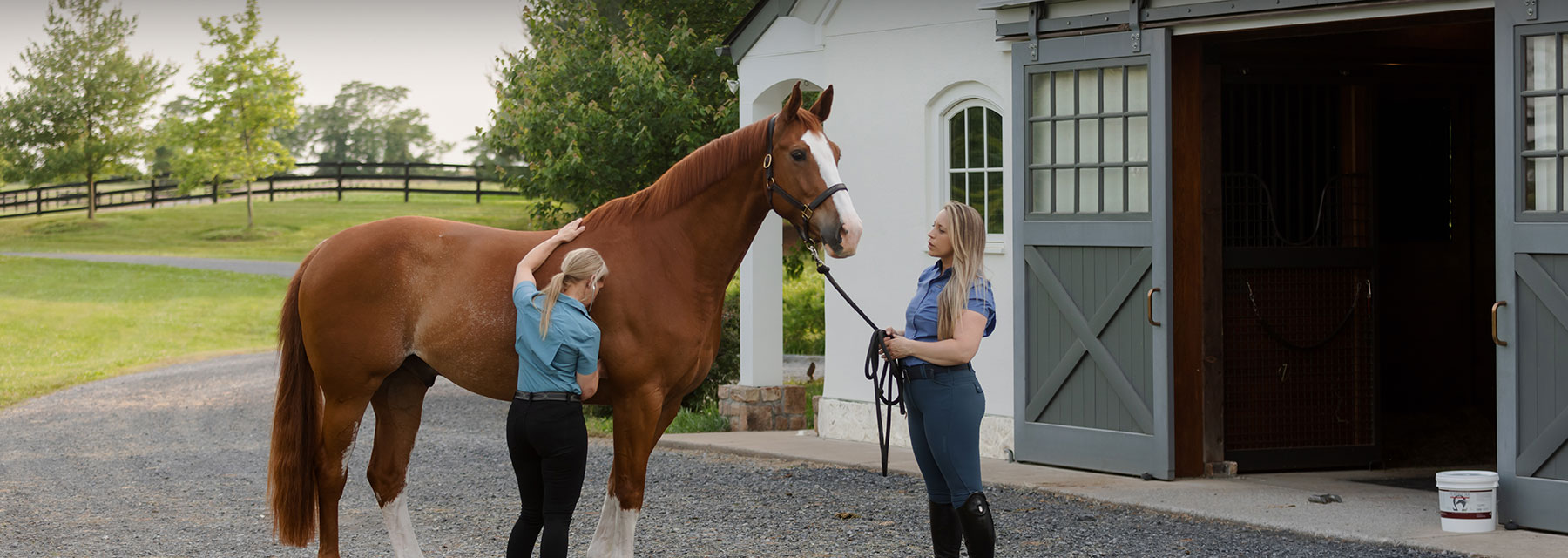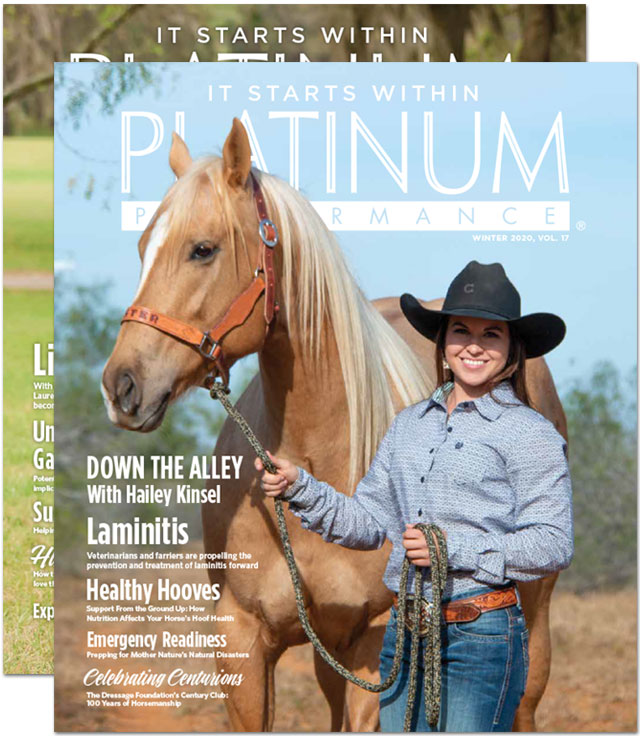Breaking Down Equine Care From An Owner’s Perspective:
Everything From Grooming, Riding and Feeding to Veterinary and Farrier Visits
Every horse owner can agree there is nothing better for the soul than going out to the barn and spending time with these magnificent animals. What they don’t mention is the time, energy and work they put into caring for their equine counterparts to keep them happy and healthy. Horses are complicated animals with many unique features that require special care and attention day in and day out. To someone that is new to the barn, owning a horse can sound intimidating with so many details to remember. Whether you are new to horses or just looking for a refresher in equine care, here is a compiled list of items to think about when attending to your horse:
Article and Resource Index
Environment
If you are considering buying a horse, it is important to consider where your horse will live and what options you have available. Due to their sheer size and roaming nature, horses do better when turned out in a large pasture. If your horse is going to be kept in a confined area, a 10-foot square pen is about the smallest recommended size for the average horse and will require daily stretches for your horse’s legs outside the pen. A shelter or tree is also a necessary component of a pen to provide shade in the summer and protection from the wind and rain on winter days. While some people can keep their horses at home, there are also many great boarding facilities that house and care for animals as well. It is crucial for you to weigh the pros and cons of each available option and choose the one that is best for you and your horse.
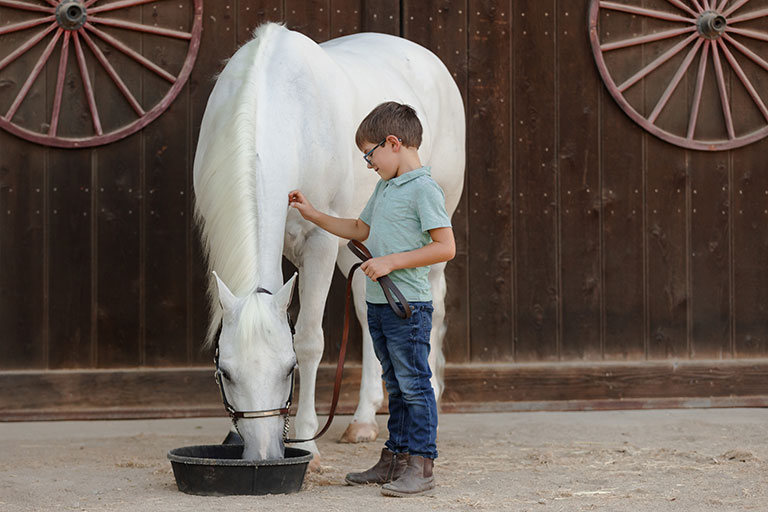
Nutrition
Horses have a unique digestive tract that was designed for them to graze on forage all day long. Since many owners don’t have access to fresh pasture, feeding practices can be an important part of keeping horses healthy. High quality forage should be the major component of a horse’s diet. On average, a horse should eat approximately 1 to 2% of their body weight which is between 10 and 20 pounds of hay per day for an average adult horse. The hay should be fed at least two times per day, preferably on a schedule at the same times every day. To stay hydrated and support digestion, horses require an abundant supply of clean, fresh water to drink which should be available free choice. Generally speaking, horses will consume five to ten gallons of water every day. To ensure horses are getting all the necessary nutrients for daily health, it is also recommended to feed a comprehensive wellness formula like Platinum Performance® Equine.
View all Wellness FormulasVeterinary Care
Preventative care is a major component of keeping horses healthy. It is important to work with your veterinarian to keep your horse on an annual wellness program that consists of at least one physical wellness exam, one dental exam, a vaccination program comprised of AAEP’s core vaccinations and a deworming program that includes a fecal egg count and at least one deworming per year, depending on what your veterinarian recommends. Ensuring these check-ups are done on a yearly basis can help identify any concerns before they become a major problem or emergency.
It is important to have a plan in place should an emergency happen. Make sure you know which vets are on call in your area and how you will get your horse to the vet should your horse need immediate attention. Learn more about how to prepare for an emergency.
Farrier Visits
Whether your horse is barefoot or requires shoes, it is important to be on a regular trimming schedule with your farrier. Horses should be trimmed and shod, if needed, every 6 to 8 weeks depending on their growth pattern and exercise level. Your farrier may also require your assistance to help hold or calm your horse while being shod as this practice can stress some horses out.
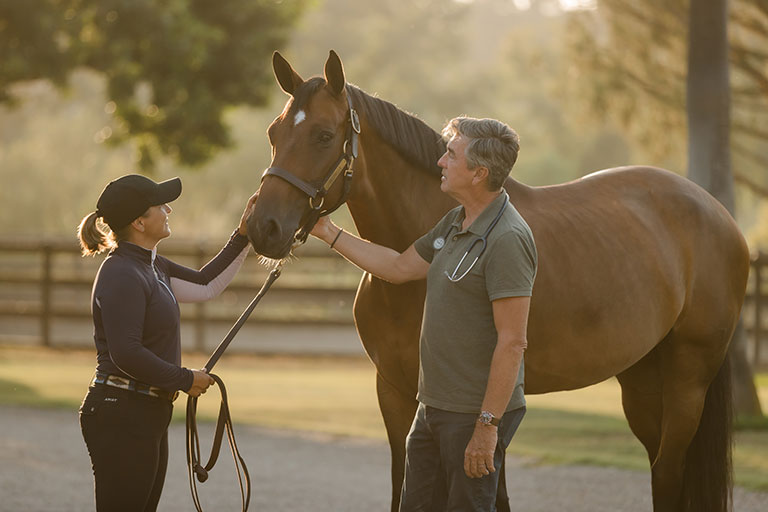
Insurance
While insurance is not required, it can be helpful in times of need when treatment and recovery options can be expensive. Since equine colic can be one of the most common heartaches that horse owners endure, you may also consider Platinum Colic Coverage®. It’s complimentary if you are feeding select Platinum formulas and keeping up with your horse’s wellness services.
Enroll NowLearn MoreEquipment
Depending on what you plan to do with your horse, you will need the proper tools and equipment to catch, groom, ride and clean your animal. Here is a short list of some of the most important items to have on hand:
- Halter and lead rope
- Grooming Tools: brushes, curry comb, hoof pick and hair detangler
- Riding Gear: saddle, pad, cinch or girth, bit, bridle and reins
- Winter blanket and/or fly sheet
- Cleaning Equipment: manure fork, wheelbarrow and rake
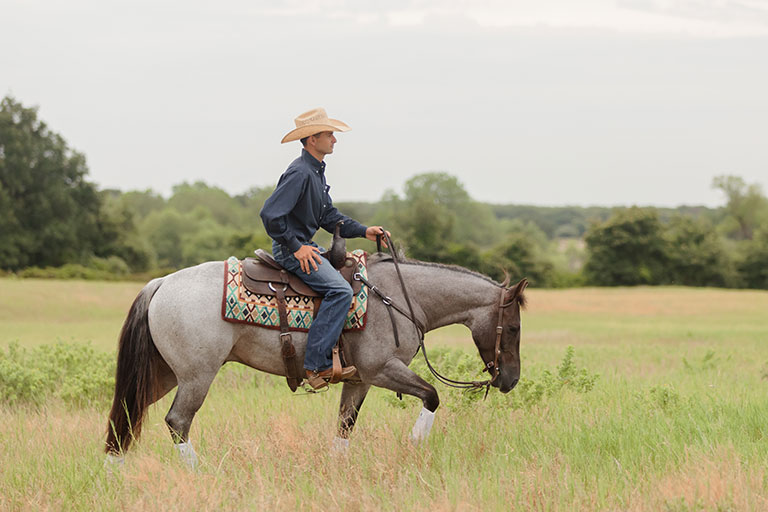
Riding
Most owners would agree that the best part of having a horse is mounting up and riding off, however if you have not been horseback before or your horse is not yet trained, then this could take some time. Luckily, there are experts out there that can help train your horse or give you lessons on how to ride.
Conditioning
Just like if a person was going to compete in a marathon, a horse needs to prepare for any type of competition or activity that you would like to do. Without proper conditioning for an event, a horse can risk injury or sickness from overwork. A good conditioning program lasts about an hour every day and includes a combination of exercises including walking, trotting, loping or cantering, stopping, turning and hill work.
Resources for Horse Owners
Learn more about horse health from experienced horse owners, veterinarians, nutritionists, trainers, breeders and top competitors.
